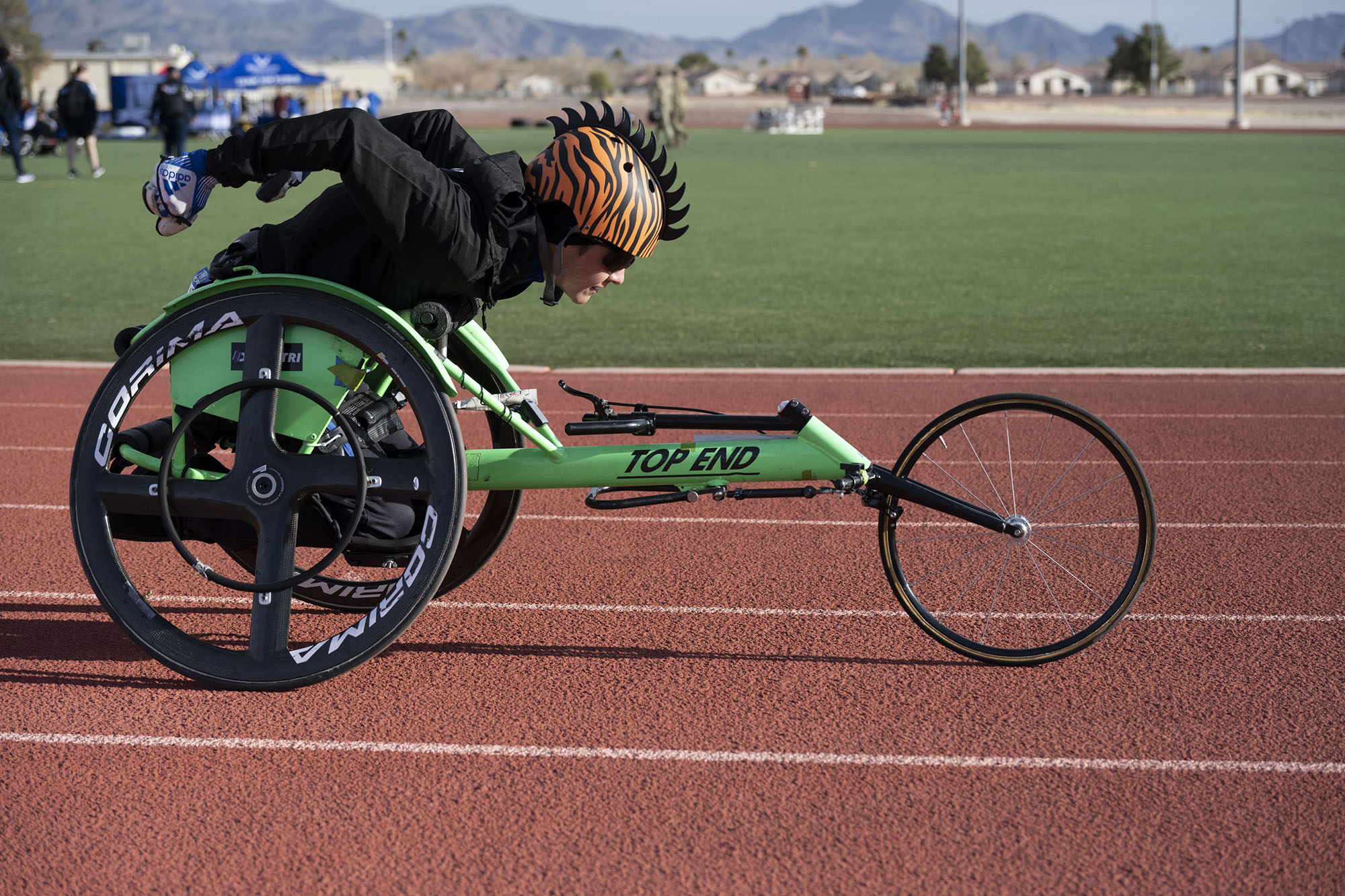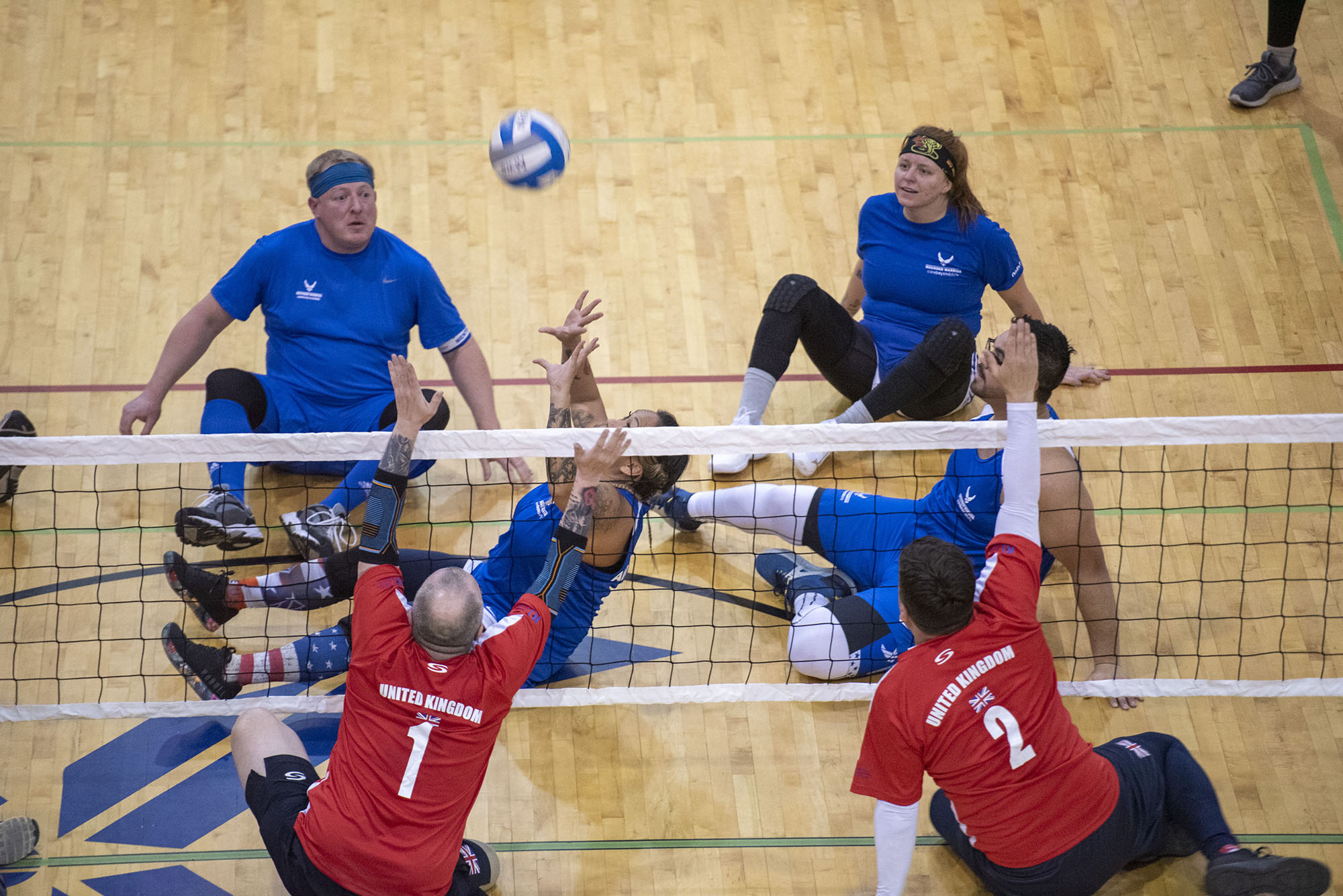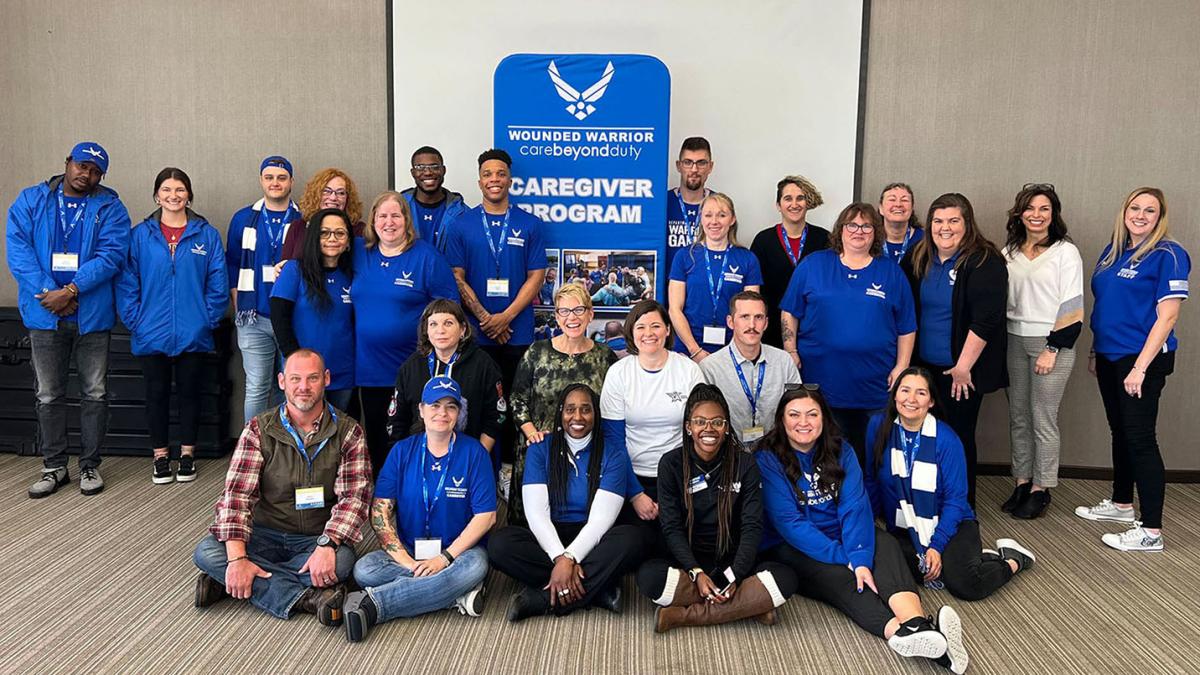Hidden Heroes: Celebrating Those Who Care for Our Wounded
May 1, 2023 | By Christine Brown
In 2016, a ruptured brain aneurysm left retired Chief Master Sgt. Garret Kuwada with permanently impaired balance, hearing, speech, and vision. On his road to recovery, his wife Joey has been by his side as his round-the-clock caregiver.
“Being a caregiver means always being there for my warrior, my husband, and helping him through the stuff he can no longer do and being there for the times to help him when he can’t help himself,” she said. “My motivation is to keep him going and to get him back at the level he was, to help get him back to the person he was before his injury, and to let him know that he still is that person. I believe it is my job to pull that out of him and make him believe it himself.”
Recovering from an injury is a long and arduous process, but caregivers ensure their warriors don’t have to make the journey alone. Becoming a caregiver means accepting a permanent term of service, but their dedication is a natural response to help a loved one in need.
“Caregiving is a 24/7 operation,” said Rodney Stark. His wife, retired Master Sgt. Lyndie Stark, has struggled through several injuries and illnesses, including a traumatic brain injury, PTSD, severe migraines, and knee reconstruction. Although these circumstances are challenging for warriors and caregivers alike, Stark is determined to help his wife rediscover her warrior spirit within.
“What motivates me to keep going as a caregiver is to see my warrior shine and remind her of what’s already there and what’s been there before,” he said. “It’s easy for [wounded] warriors to feel that loss of value and what their identity was that got taken away, so as a caregiver my main motivating factor is to help her see that again.”
Fortunately, caregivers like Kuwada and Stark don’t have to shoulder their commitment alone. Kuwada and Stark are two of 1,268 caregivers and spouses who are enrolled in the Air Force Wounded Warrior (AFW2)’s Caregiver and Family Support Program. The program provides resiliency training, one-on-one conversations with DAF senior leaders, and opportunities for community-building with fellow caregivers.

AFW2 facilitates these rehabilitative activities and support systems for caregivers and their warriors through regional gatherings called CARE events. But since AFW2 is a federally funded program, it faces certain barriers to supporting all its caregivers in the ways they need. That’s where AFA has stepped in.
AFA created the Wounded Airmen & Guardians Program in 2011 and has been working closely with AFW2 to fund activities, broaden its reach, and fill in logistic gaps at CARE events ever since. At every on-site CARE event, AFA hosts a “Caregiver Day” to treat the caregivers to respite care, mindfulness coaching, and team-building activities to improve their quality of life.
The latest AFA Caregiver Day was during the 2023 Southwest Regional CARE Event and Air Force Trials Competition at Nellis AFB. AFA and the local AFA Thunderbird Chapter welcomed 45 caregivers for a day of wellness training, lunch at a Las Vegas resort, and destruction therapy at a wreck room.

“Since caregivers are hidden heroes, their contributions to a warrior’s recovery often go unnoticed,” said Tonya McGough, manager of AFW2’s Caregiver & Family Program. “AFA has always recognized and understood the true meaning of self-care and self-healing.”
Funded entirely by donations from AFA’s individual and corporate members, the Wounded Airmen & Guardians Program has provided more than $1 million in support to wounded warriors, caregivers, and their families since 2011.
May is the Month of the Military Caregiver, the backbone of the wounded warrior community. Show your support for caregivers, their warriors, and their sacrifices by making a gift today.
